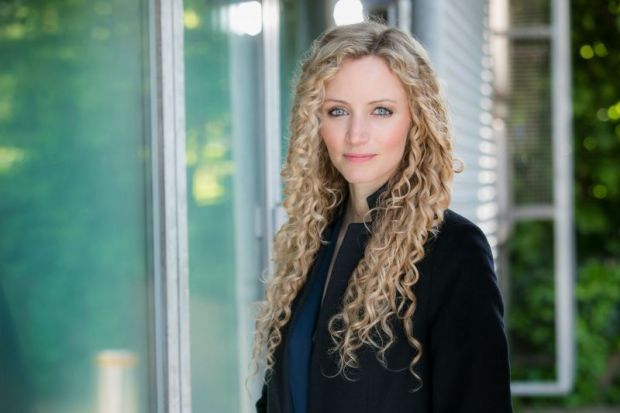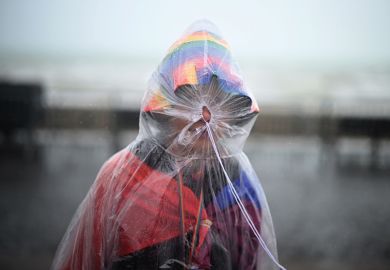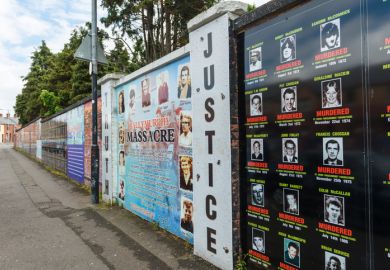Suzannah Lipscomb is professor of history at the University of Roehampton. After a first degree in history at the University of Oxford, she served as a research curator at Hampton Court Palace and taught at the University of East Anglia and the New College of the Humanities. She is also a well-known television presenter. Her fifth book on the 16th century, The Voices of Nîmes: Women, Sex & Marriage in Reformation Languedoc, was recently published by Oxford University Press.
How has your background shaped who you are?
Neither of my parents went to university after school – although both have subsequently studied for degrees – but I was nevertheless brought up with the expectation that I would go to university. I don’t doubt that this expectation-raising was fundamental to my becoming a person who believed she could and would go to university.
What kind of undergraduate were you?
A dedicated, slightly hippy one. After acting and all sorts of extracurricular activities at school, at Oxford I focused on just three things: history – I loved my studies and worked hard at my degree; India – after my gap year, I returned to India very regularly and learnt Hindi throughout my time at Oxford; and my boyfriend of the time, now a fellow writer and historian, who remains a good friend.
What spurred you to become a historian?
My wonderful college tutor, Susan Brigden, sent me to meet Robin Briggs in his rooms at All Souls College – in one of the original ivory towers – to discuss my undergraduate comparative essay on religious violence. I was focusing on 19th- and 20th-century India and 16th-century France, and I went to talk over the latter with Robin. After an hour or so of the most intellectually stimulating conversation I’d ever had, I came out – I remember the moment – and I thought: “If I could do a doctorate with him…”
Have you encountered any snobbery from other academics about your television work?
Attitudes are changing, but it is true that only a couple of years ago I was introduced at a conference with the ostensibly reassuring words, “Some of you may know her from TV, but she really is a proper historian.”
You have written books about Henry VIII. What explains our continuing fascination with the Tudors?
For a start, the stories are just so good – the much-married king who killed two of his wives, the “nine [actually 13] days’ queen”, the unmarried virgin queen – it’s pure tabloid. Then there’s the fact that the sources that survive from this period are sufficiently rich to help us feel like we know these characters and, for the first time; the Renaissance had hit England enough that we also know what they look like. Plus, it’s a period that actually matters: it marks the beginning of modernity in many ways. And, finally, most of us learned about them at school at an age when we were easily entranced by knights and princesses.
What are the pleasures of intensive archival research among documents such as the ecclesiastical court records you draw on in your new book?
The joy of reading 400- or 500-year-old manuscripts, especially those that only a handful of people have ever read, is unrivalled. It feels extraordinarily precious to touch what was written so many centuries ago, it is so satisfying to decipher the handwriting and discern the meaning, and it can give such an insight into the overlooked realities of people’s lives. Reading materials on microfilm or in transcription has none of that visceral pleasure.
How does it enrich us to learn about the lives of ‘ordinary women’ in the past?
We tell ourselves stories about the past – that it was much better or much worse than today, that there was a lost golden age, that our current problems are new. Learning about the lives of ordinary women in the past contextualises our present and forbids such simple conclusions. The women of France 400 years ago had their own #MeToo circumstances – most girls and young women served as maids as they sought to save up their dowries, and many were assaulted by their elder male employers, their sons or fellow servants. The fact that women had little official power or status but continued to act vocally, boldly and violently reminds us that our ideas about gender are culturally specific. There is no aspect of their lives that does not illuminate something of our own.
Apart from the lack of source material, what are the main barriers to studying the private lives of poor women?
It’s not really possible to answer the question without addressing that lack of source material, because it is the crux of the matter. The other significant barrier is that one may only find small pockets of evidence concerning such women and there are historians – one’s potential peer-reviewers – who feel that a small sample size nullifies one’s work. If we only write the histories of those for whom large swathes of evidence survive, we’ll keep writing the histories of rich and powerful white men.
Tell us about someone you’ve always admired.
Historians Natalie Zemon Davis, Emmanuel Le Roy Ladurie and Keith Thomas.
If you were a prospective student now facing £9,000-plus fees, would you go again or go straight into work?
Yes, I would go again, without a shadow of a doubt. That doesn’t mean I think that the fees are right or equitable or just, but learning how to think – which is what a degree teaches you – is one of the greatest gifts I have ever received. I owe much of my life’s contentment (as well as, admittedly, some of its frustrations) to my Oxford training.
matthew.reisz@timeshighereducation.com
Appointments
Paul Boyle has been appointed Swansea University’s new vice-chancellor. The current vice-chancellor of the University of Leicester will succeed Swansea’s current head Richard Davies, who has been suspended since November but had previously announced his intention to retire at the end of this academic year. Professor Boyle, a former chief executive of the Economic and Social Research Council who has led Leicester since September 2014, said that “the time is now right for me to take up a new challenge” and that he was “enormously excited” to be joining Swansea as it approached its centenary in 2020.
Robert Van de Noort has been named the University of Reading’s new vice-chancellor. The Dutch archaeologist will take on the role with immediate effect having been appointed acting vice-chancellor in September, following the departure of Sir David Bell. Professor Van de Noort, who joined the university in 2014 as pro vice-chancellor for academic planning and resources, said that he felt “hugely privileged” to lead the university. “My top priority is to revise our strategy through further consultation and engagement” to create a “new shared vision for the future that meets the demands of a sector that continues to change rapidly”, said Professor Van de Noort.
Medha Narvekar has been appointed vice-president and secretary of the University of Pennsylvania, having worked in the university’s development and alumni relations office for three decades.
Simeon Keates has been appointed dean of the School of Engineering and the Built Environment at Edinburgh Napier University. He joins the institution from the University of Greenwich, and previously held posts at Abertay University and the IT University of Copenhagen.
Helen Pennack is to be the University of Nottingham’s new chief marketing and communications officer. She is currently director of marketing and communications at the University of Warwick.
Register to continue
Why register?
- Registration is free and only takes a moment
- Once registered, you can read 3 articles a month
- Sign up for our newsletter
Subscribe
Or subscribe for unlimited access to:
- Unlimited access to news, views, insights & reviews
- Digital editions
- Digital access to THE’s university and college rankings analysis
Already registered or a current subscriber? Login








